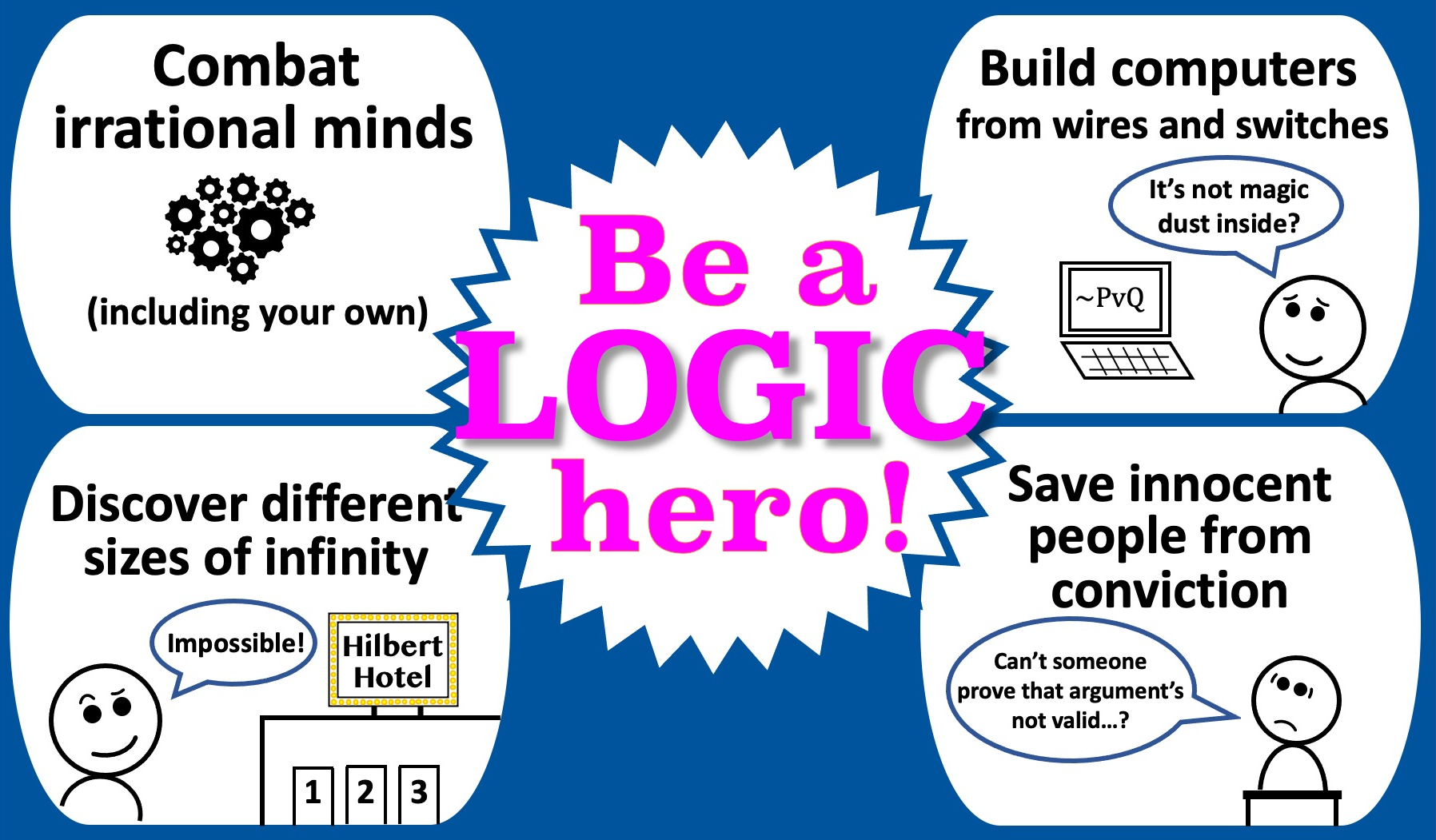 Overview
Overview
What makes an argument good? How do you show that someone has reasoned invalidly? In this course we will study arguments and reasoning both informally as well as with the tools and techniques of formal deductive logic. We learn the syntax and semantics of propositional and first-order logic (polyadic with identity), and we will use them to explicate the notion of a valid argument. We then apply our formal logical techniques to a variety of domains, such as the domain of sets (abstract collections of objects). Topics include syntax, semantics, pragmatics, consistency, proof, logical consequence, logical equivalence, logical truth, logical form, set theory, infinity, paradoxes, truth functionality, binary numbers, logic gates, truth tables, quantification, relations, functions, interpretations, models, soundness, and completeness. We will also discuss connections between formal logic and computability theory, philosophy of language, cognitive science, foundations of mathematics, and metalogic (theorems about logical systems themselves).
Course Structure
For Summer 2023, this course is currently listed as hybrid, but it is now fully remote. It will have a combination of synchronous and asynchronous portions.
The midterm and final exams will be online timed Canvas quizzes available at specific points in the course, though you will have a 2-day window in which you can take them. The midterm exam will be around Thursday or Friday of week 2, and the final exam will be around the last day of the Summer A term. The are timed: you will have several hours to take the exams once you start them. You do not need to take them at an exact time, but you do have to take them on those days.
